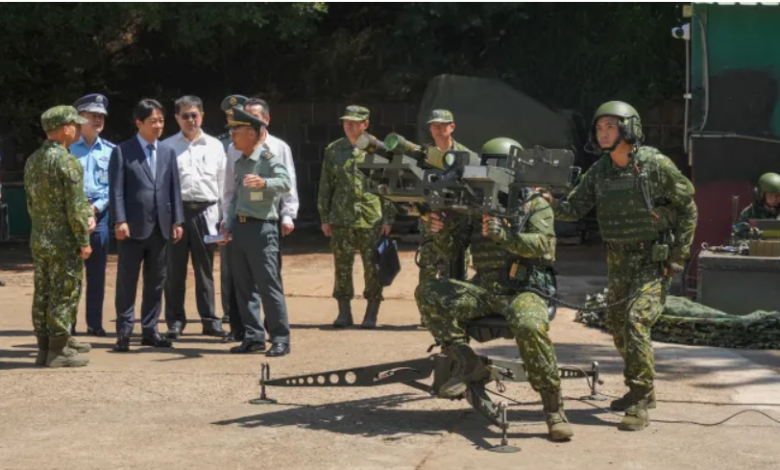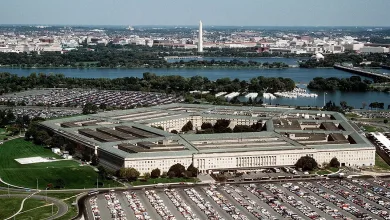China Hits US Defense Firms with Sanctions Over Taiwan Arms Sales

- Zhang Youxia called Taiwan's status a "red line" in China-US relations.
- He urged the US to stop military collusion with Taiwan.
- The meeting was part of Jake Sullivan's first visit to China since 2016.
- Tensions between Beijing and Washington include trade and the South China Sea.
China has sanctioned nine US defense firms for selling military equipment to Taiwan, according to the Ministry of Foreign Affairs in Beijing. Announced on Wednesday, this action intensifies China’s pressure on Taiwan and reflects its demands for Washington to cease support for Taiwan’s independence efforts.
China has frozen the assets of nine US defense firms on its territory and has immediately prohibited all transactions with China-based individuals or entities, according to a ministry statement.
Spokesman Lin Jian stated that US weapon sales to “China’s Taiwan region” have “seriously violated the one-China principle,” undermining China’s sovereignty and security interests while damaging China-US relations.
During a news conference, Lin emphasized that Beijing is implementing “resolute countermeasures” against the affected companies.
The firms facing sanctions include Sierra Nevada Corporation, Stick Rudder Enterprises, Cubic Corporation, S3 Aerospace, TCOM Ltd Partnership, TextOre, Planate Management Group, ACT1 Federal, and Exovera.
On Monday, the US State Department approved a potential sale of spare parts to Taiwan’s military, valued at approximately $228 million. Taiwan’s defense ministry stated that the sales package, aimed at maintaining “combat readiness,” is expected to take effect within a month.
Spokesman Lin Jian urged the US to “stop conniving and supporting Taiwan independence,” emphasizing the need to avoid actions that undermine peace and stability in the Taiwan Strait.
China considers democratically governed Taiwan to be its own territory and has increased military and political pressure over the past five years to assert its claims, which Taipei firmly rejects.
Although the United States shifted diplomatic recognition from Taipei to Beijing in 1979, it has remained Taiwan’s key partner and largest arms supplier, leading to frequent condemnations from China.
Beijing and Washington have clashed in recent years over various issues, including trade, access to advanced technology, and China’s assertive actions in the disputed South China Sea.
Last month, White House aide Jake Sullivan met with senior Chinese military official Zhang Youxia, marking the first visit to China by a US national security adviser since 2016.
During the meeting, Zhang warned that the status of the self-ruled island is “the first red line that cannot be crossed in China-US relations,” urging the United States to “halt military collusion with Taiwan.”






